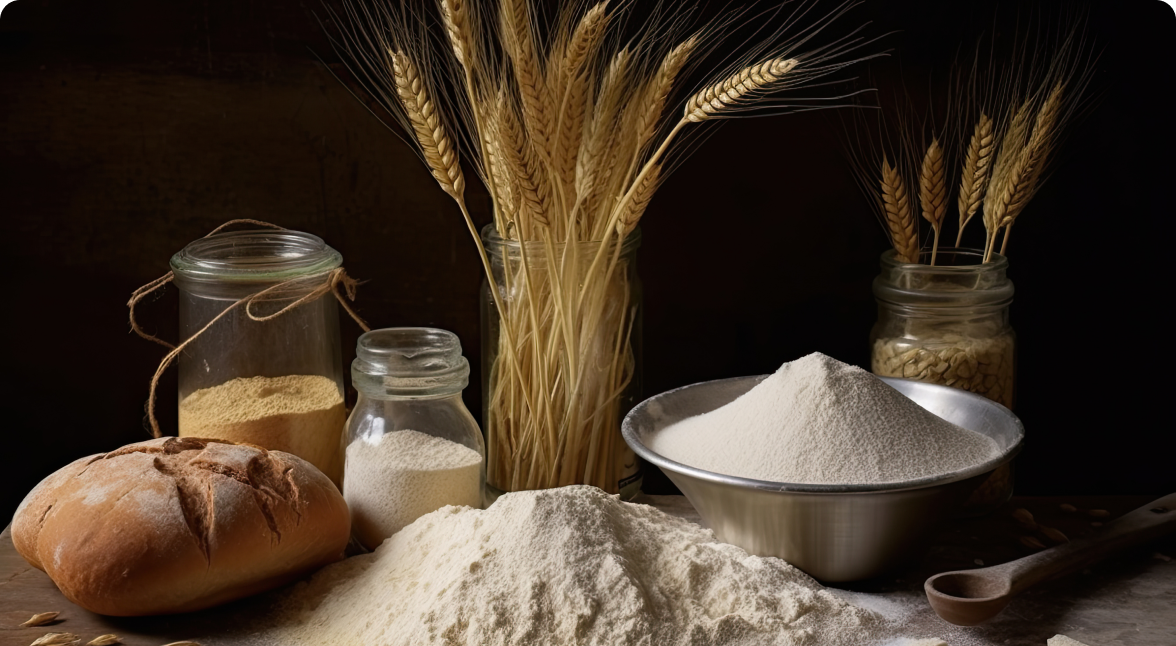
Organic flour is an essential ingredient for health-conscious bakers who want to create delicious and nutritious baked goods. By choosing organic flour, you can ensure that your baked goods are free from harmful chemicals and pesticides, making them a healthier option for you and your family. In this ultimate guide, we will explore everything you need to know about organic flour, including its benefits, types, and how to use it in your baking.
Benefits of Organic Flour
1. Healthier Option
- Organic flour is free from synthetic pesticides, herbicides, and fertilizers, making it a healthier option for both you and the environment.
- It retains more nutrients, such as vitamins, minerals, and antioxidants, compared to conventional flour that may have been stripped of these beneficial components during processing.
2. Better Taste and Texture
- Organic flour often has a richer flavor and better texture, thanks to the natural farming practices used to cultivate the wheat.
- It can enhance the overall taste of your baked goods, providing a more wholesome and satisfying experience for your taste buds.
Types of Organic Flour
1. Whole Wheat Flour
- Made from grinding the entire wheat kernel, whole wheat flour is rich in fiber, vitamins, and minerals.
- It has a nutty flavor and is ideal for making bread, muffins, and other hearty baked goods.
2. Spelt Flour
- Spelt flour is an ancient grain that is known for its nutty flavor and nutritional benefits.
- It is a good source of protein, fiber, and essential nutrients like iron and magnesium.
3. Almond Flour
- Almond flour is a gluten-free option made from ground almonds.
- It is rich in healthy fats, protein, and antioxidants, making it a popular choice for low-carb and paleo baking recipes.
How to Use Organic Flour in Your Baking
1. Substitution
- You can easily substitute organic flour for conventional flour in your favorite recipes. However, keep in mind that organic flour may absorb more or less liquid, so you may need to adjust the amount of liquid used in your recipe.
2. Baking Tips
- When using organic flour, weigh it for accuracy, as it can vary in texture and density compared to conventional flour.
- Sift the flour before using it to remove any lumps and aerate it for better baking results.
3. Storage
- Store organic flour in an airtight container in a cool, dark place to preserve its freshness and prevent it from going rancid.
- Avoid storing organic flour near strong-smelling foods, as it can easily absorb odors.
Conclusion
Organic flour is a healthier and more flavorful option for health-conscious bakers who want to create delicious baked goods without compromising on quality. By choosing organic flour, you can enjoy the benefits of nutrient-rich ingredients that are free from harmful chemicals and pesticides. Whether you prefer whole wheat, spelt, or almond flour, there are plenty of organic options available to suit your baking needs. Remember to store your organic flour properly and follow baking tips to ensure the best results in your recipes. Embrace the goodness of organic flour in your baking and enjoy the taste of wholesome, nutritious treats!